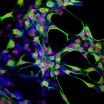Anxious searchers miss multiple objects
2011-06-16
(Press-News.org) DURHAM, NC -- A person scanning baggage or X-rays stands a better chance of seeing everything they're searching for if they aren't feeling anxious, according to a new laboratory experiment.
Duke psychologists put a dozen students through a test in which they searched for particular shapes on a computer display, simulating the sort of visual searching performed by airport security teams and radiologists.
Stephen Mitroff, an assistant professor of psychology and neuroscience who led the experiment, says this area of cognitive psychology is important for improving homeland security and healthcare. He's begun collaborating with the Transportation Security Agency at RDU airport and radiologists at Duke.
In earlier studies of this type, Mitroff's team had wondered if the anxiety produced by being visible to a long line of frustrated travelers or having to interpret an image in a medical emergency might change a person's performance on these sorts of tasks.
To simulate a stressful situation in this study, the researchers told the participants they might receive an unpredictable electrical shock for half of the trials that would be unrelated to their performance. Annoying but not painful electrical shocks are a well-established means of inducing anxiety in the lab. Only tests run without a shock were analyzed, focusing the research on the anxiety produced by anticipating a negative event. On the other half of the trials, participants heard a harmless tone.
Subjects performed about the same when searching for a single object whether anxious or not. But when the researchers added a second target, participants were more likely to miss the second object when anxious, despite spending the same amount of time looking at the image.
Missing a second target is a well-known issue called "satisfaction of search," Mitroff said, and it's believed to account for about 40 percent of radiology misses. A person finds the first object and then simply fails to see the second one, even though they're still looking.
Anxiety heightened the satisfaction-of-search problem, a finding which has important implications for the way we train and test searchers, Mitroff said.
###
The research was published online June 13 in Psychological Science. It was supported by the Army Research Office and the Institute for Homeland Security Solutions.
CITATION: "Anticipatory anxiety hinders detection of a second target in dual-target search," Matthew S. Cain, Joseph E. Dunsmoor, Kevin S. LaBar and Stephen R. Mitroff. Psychological Science, June 13, 2011. doi:10.1177/0956797611412393
END
ELSE PRESS RELEASES FROM THIS DATE:
2011-06-16
Have you ever thought you could lose weight and star on The Biggest Loser if you weren't so darned hungry all the time?
Unfortunately, the diets we turn to for help don't do the job. How often have you heard that weight loss is as simple as taking in fewer calories than you burn and--voila!--the pounds will come off?
It's actually a bit more complicated than that. Doctors used to think that a calorie was a calorie. It didn't matter if your diet plan called for eating 1,200 calories in Twinkies all day. If you cut out enough calories, you could lose weight. Now, they're ...
2011-06-16
Using sophisticated methods of dating rocks, a team including University of Southampton researchers based at the National Oceanography Centre, Southampton, have pinned down the timing of the start of an episode of an ancient global warming known as the Paleocene-Eocene thermal maximum (PETM), with implications for the triggering mechanism.
The early part of the Cenozoic era, which started around 65.5 million years ago witnessed a series of transient global warming events called hyperthermals. The most severe of these was the PETM at the Paleocene–Eocene boundary, around ...
2011-06-16
INDIANAPOLIS – Researchers have used cutting-edge stem cell technology to correct a genetic defect present in a rare blinding disorder, another step on a promising path that may one day lead to therapies to reverse blindness caused by common retinal diseases such as macular degeneration and retinitis pigmentosa which affect millions of individuals.
In a study appearing in an advance online publication of the journal Stem Cells on June 15, 2011, investigators used recently developed technology to generate induced pluripotent stem (iPS) cells from a human patient with an ...
2011-06-16
A new study in the Journal of Consumer Research explains why sad people are more likely to want to hug a teddy bear than seek out a visual experience such as looking at art. Hint: It has to do with our mammalian instincts.
"Human affective systems evolved from mammalian affective systems, and when mammals are young and incapable of thinking, their brain systems have to make these pups able to perform the 'correct' behavior," write authors Dan King (NUS Business School, Singapore) and Chris Janiszewski (University of Florida, Gainesville). One way the brain encourages ...
2011-06-16
When consumers think about the groups they belong to, they recall ads better, according to a new study in the Journal of Consumer Research.
"A key determinant of how much consumers remember from an ad is the connection between the ad content and the consumer's own self-concept," write authors Kathryn R. Mercurio (UCLA) and Mark Forehand (University of Washington, Seattle).
Consumers identify with many different demographic groups, such as race, gender, or age. They also identify with family role groups (mother, father, sister), or occupational groups such as lawyer, ...
2011-06-16
Strongly identifying with an organization or workplace can change people's lives in profound ways, according to a new study in the Journal of Consumer Research.
"Managers often hope that consumers identify with organizations they regularly patronize, and firms sometimes encourage labor to encourage employees to identify with firms they work for, because in both cases organizations benefit from such identification," write authors Melea Press and Eric J. Arnould (both University of Wyoming, Laramie). The authors focus on identification formation from the perspective of ...
2011-06-16
Magical thinking, usually dismissed as naïve and irrational, can actually help consumers cope with stressful situations like trying to lose weight, according to a new study in the Journal of Consumer Research.
"Magical thinking occurs when an individual invokes mystical, supernatural forces to understand, predict, or even influence events to overcome these stressful situations," write authors Yannik St. James (HEC Montreal), Jay M. Handelman, and Shirley F. Taylor (both Queen's University, Kingston, Canada).
"Weight loss activities are stressful for a number of reasons: ...
2011-06-16
Having an attractive model shill for a product only helps influence sales in certain situations, according to a new study in the Journal of Consumer Research. It seems it all depends on the set-up for the advertising.
"Sometimes attractive endorsers increase persuasion, sometimes they decrease persuasion, and sometimes they have no effect at all," write authors Janne van Doorn and Diederik A. Stapel (both Tilburg University, the Netherlands). In four experiments, the authors demonstrated that context is everything when it comes to evaluating the role of the attractive ...
2011-06-16
The following highlights summarize research papers that have been recently published in Water Resources Research (WRR), Geophysical Research Letters (GRL), Journal of Geophysical Research-Atmospheres (JGR-D), Paleoceanography (PA), and the Journal of Geophysical Research-Oceans (JGR-C).
In this release:
How yearly cholera outbreaks propagate in the Bengal Delta
Surge in North Atlantic hurricanes due to better detectors, not climate change
Potential for Atlantic current collapse hinted by complex global circulation model
Formation of Indonesian Archipelago destroyed ...
2011-06-16
Consumers react strongly to their product choices being copied, according to a new study in the Journal of Consumer Research. They really dislike it when the copycat is someone similar to them.
"Have you ever gone to a party only to learn upon arrival that another guest is wearing the same dress or shirt as you?" ask authors Katherine White (University of British Columbia) and Jennifer J. Argo (University of Alberta). The researchers looked at what happens when someone else copies a consumer's product choice.
Although past research suggests that people are often motivated ...
LAST 30 PRESS RELEASES:
[Press-News.org] Anxious searchers miss multiple objects


